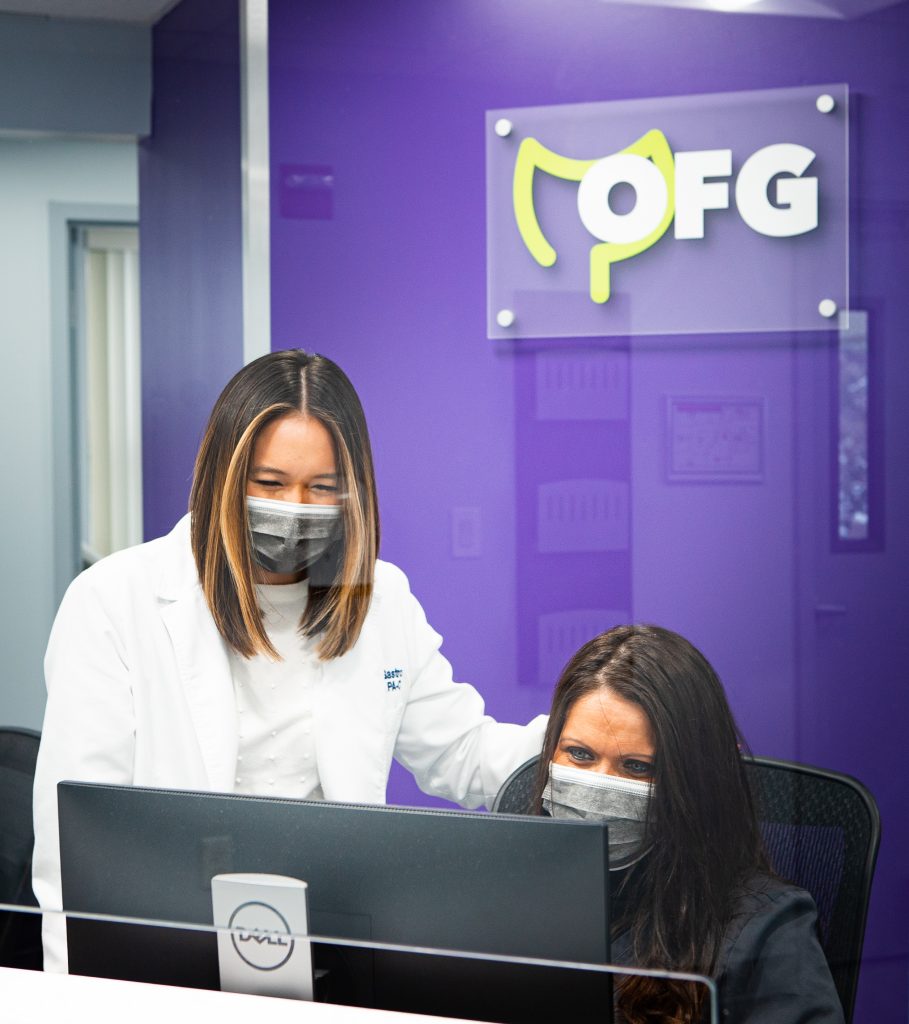Upper endoscopy helps your doctor evaluate symptoms of persistent upper abdominal pain, nausea, vomiting, difficulty swallowing or the cause of bleeding from the upper gastrointestinal tract.
Your stomach must be empty. Do not eat or drink anything, including water, for approximately six hours before the procedure. Our schedulers will tell you when to start fasting.
You will be sedated before and during the procedure to help you relax and make you sleepy. You will lie comfortably on your left side. The doctor will pass the endoscope through your mouth and into the esophagus, stomach, and duodenum. The endoscope does not interfere with your breathing. The scope blows air into the stomach to expand the folds of tissue making it easier for the physician to examine your stomach. You should experience little to no discomfort with this procedure.
After the procedure, your throat may be slightly sore. You might feel bloated from the air that was introduced into your stomach.
Sedation will be given before and during your procedure to help you relax and make you sleepy. You will lie on your left side as a flexible tube is inserted into your anus and slowly advanced into the rectum and colon. The procedure will cause you little to no discomfort.
A polyp is an abnormal growth found in the colon lining. They vary in size and shape, and while most are benign (non-cancerous), some may turn into cancer. It is important to remove pre-cancerous polyps as a preventative measure for colorectal cancer. Very small polyps may be totally destroyed by fulguration (burning). Larger polyps are removed by a technique called snare polypectomy. A wire loop (snare) is passed through the scope and removes the polyp from the intestinal wall. This technique causes no pain,
After the procedure, you may experience some bloating or mild cramping because of the air introduced into your colon. These symptoms should disappear when you pass gas.
Please follow all instructions and make every effort to drink all the purging solution. The height and weight of a patient does not determine the amount of solution needed to purge your colon. Remember, we are trying to clean out your entire digestive tract. If your colon is not clean, the physician cannot do a thorough exam. We may have to reschedule your test for another day.
If you develop symptoms of nausea or vomiting, stop the prep for an hour then resume the process. If you were not able to complete the prep, call our office and we can help you or reschedule.
